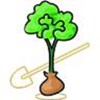Posted 12/16/2010
by Marilyn J. Smith

Can You Make Money Farming?
Popular online course 'Markets & Profits' can help you find out
Many people get into farming for the love of it, with little thought to the considerations of how to establish a business that will be viable long-term. Who will buy what you grow, and will they pay enough to sustain you through the long years of hard work it will take to get the business going?
The popular introductory-level online course Markets & Profits: Making Money Selling What You Grow can help you research these topics, providing resources, a cohort of peers to discuss ideas with, and presenters to focus your planning process. The course runs Jan. 20 to Mar 2, 2011.
Taught by experienced CCE educators, the course integrates self-paced weekly activities with real-time webinars featuring guest presenters. Join 25 of your farmer peers in a dynamic learning experience and take your farm planning to the next level.
The cost of the course is $150. To register or to learn more details about the course, please visit http://www.nybeginningfarmers.org/index.php?page=onlinecourse
Posted 12/10/2010
by Marilyn J. Smith

The 2011 edition of the Cornell Pest Management Guidelines for Berry Crops is now available. This annual publication provides up-to-date pest management and crop production information for blueberry, bramble (raspberry and blackberry), strawberry, ribes (currant and gooseberry), cranberry, elderberry, and Juneberry(Saskatoon) production in New York State. Supplemental information on wildlife management and harvesting, handling, and transporting berry crops is also included. This publication has been designed as a practical guide for berry crop producers, crop consultants, ag chemical dealers, and others who advise berry crop producers.
In addition to the annually revised pesticide and crop production information, several significant updates have been made to the 2011 edition of the Berry Guidelines including:
- A brand new chapter on sprayer selection, calibration, and maintenance.
- Information on soil health and nematode testing.
- A new chapter on Junberry(Saskatoon) pest management.
The 2011 Cornell Pest Management Guidelines for Berry Crops can be obtained through your local Cornell Cooperative Extension office or directly from the Pesticide Management Education Program (PMEP) Educational Resources Distribution Center at Cornell University. To order from PMEP, call (607) 255-7282, send an email to patorder@cornell.edu, or order on-line at http://psep.cce.cornell.edu/store/guidelines. Cost for the Guide is $26, shipping included.
Posted 12/9/2010
by Marilyn J. Smith

2011 Cornell Pest Management Guide for Commercial Production and Maintenance of Trees and Shrubs Now Available
The 2011 edition of the Cornell Pest Management Guide for Commercial Production and Maintenance of Trees and Shrubs is now available. This annual publication provides up-to-date pest management information for those producing or maintaining trees and shrubs (including Christmas trees) in New York State. It has been designed as a practical guide for producers, landscapers, pesticide dealers, and others who advise those producing or maintaining trees and shrubs.
This year, in addition to the annual pesticide updates, highlighted changes to the Tree and Shrubs Guide include:
- New management information on Cryptomeria and Maskell scale and alternaria leaf spot in privet.
- Identifying insecticides that may be acceptable in organic production and maintenance systems.
- Addition of Westar herbicide use guidelines for Christmas tree production.
- A new summary table of 2(ee) recommendations for various invasive weed species.
The 2011 Cornell Pest Management Guide for Commercial Production and Maintenance of Trees and Shrubs can be obtained through your local Cornell Cooperative Extension office or directly from the Pesticide Management Education Program (PMEP) Educational Resources Distribution Center at Cornell University. To order from PMEP, call (607) 255-7282, send an email to patorder@cornell.edu, or order on-line at http://psep.cce.cornell.edu/store/guidelines. Cost for the Guide is $26, shipping included.
Posted 12/3/2010
by Marilyn J. Smith
Wednesday, January 12, 2011
Cornell University, 135 Emerson Hall, Tower Road, Ithaca, NY 14853
Whether selling compost is your primary business or a side business, this workshop is for you! The workshop will provide marketing insights and sales techniques, including technical information on compost applications and benefits, feedstocks, quality standards, and marketing principles. Learn tips on developing a marketing plan for your compost operation, how to position your product, the ins-and-outs of compost market segments, bulk sales vs. bagged, distribution strategies, and making money on tipping fees. Sales strategies will also be covered, including sales points, using social media and new media techniques, branding, and customer education tips.
The workshop is free, but all attendees must register by January 4th (late registrants will need to pay their own parking). Lunch/refreshments will be provided so we need your RSVP. To register or for more information, contact Athena Lee Bradley at 802.254.3636 or by email at athena@nerc.org.
Presenters include: Jean Bonhotal, Associate Director, Cornell Waste Management Institute, Dr. Robert Rynk, SUNY Cobleskill, Agricultural Engineering Department, Charles Duprey, Business Development
WeCare Organics, LLC
This opportunity is sponsored by Northeast Recycling Council, Inc. , Cornell Waste Management Institute, SUNY Cobleskill, and NYS Department of Environmental Conservation. Funding for the workshop is from the Northeast SARE (Sustainable Agriculture, Research, and Education). Campus Map: http://cwmi.css.cornell.edu/Map.pdf
Posted 11/29/2010
by Paula Schaffer, AED Saratoga & Washington Counties
Confused About Your 2010/2011 Financial Strategy? Learn Tips on Tax Planning, Bookkeeping and Risk Management - Tax Financial Strategies Workshop
Thursday December 2, 2010, 10:00 am – 3:00 pm, CCE Saratoga County, 50 W. High Street, Ballston Spa, NY
Come and visit with Chuck Radick, E.A. of Preston Hollow, NY, a farm tax specialist and long time teacher of the Cornell One-Day Tax School for Tax preparers, as he explains how taking action in December can still impact your bottomline! Bill Burke of Burke, Miller Agency in Glenmont will discuss insurance issues and Lynne Shuart of Bookkeeping Plus will discuss Quickbooks. She will cover the basics of setting up a system and the power of its reports. Kirk Shoen, CCE-Rensselaer. County and Sandy Buxton, CCE-Washington County will also present information on price risk management.
Registration, including materials and lunch, is $25/person with an early price of $20/person if registered and paid on or before November 23, 2010. Make check out to Cornell Cooperative Ext. of Rensselaer County and mail to Cornell Cooperative Ext. of Rensselaer County, 61 State St, Troy NY 12018. Borrower training credits have been requested. If you would require any special accommodation or more information, please contact Marcie at 518-272-4210.
Posted 11/26/2010
by Karen Kosinski

The Winter Conference of the Northeast Organic Farming Association (NOFA) will be held in Saratoga Springs in January. With the helpd of some underwriters, scholarship opportunities for farmers who have been farming for less than ten years are available. The scholarships are to assist with registration costs.
A statement on their website reads, "An important part of the NOFA-NY mission is making sure that our educational programming is accessible to all farmers, gardeners, business people, and consumers. To accomplish this mission, we offer scholarships for those who need financial assistance to offset the costs of attending the Winter Conference."
Details of the conference can be found on their website.
Posted 11/24/2010
by Marilyn J. Smith
The submission deadline for Farmer Grant proposals to Northeast SARE (Sustainable Agriculture Research & Education) is December 7, 2010 for awards in the spring.
Farmers planning to apply and needing instructions, should go to the Northeast SARE web site, where you can download the application instructions and a useful guide to writing a proposal. Starting this year, proposals must be submitted on line. Details are included in the instructions.
Questions that aren't answered in these materials, may be answered by calling Northeast SARE at 1-802-656-047.
Posted 11/23/2010
by Krishna Ramanujan for the Cornell Chronicle Online

As the climate warms this century, maple syrup production in the Northeast is expected to slightly decline by 2100, and the window for tapping trees will move earlier by about a month, reports a Cornell study.
Currently, the best times to tap maple trees are within an eight-week window from late winter to early spring when temperatures cause freezing at night and thawing by day.
"By 2100, we can expect to begin tapping maples closer to Christmas in the Northeast," said Brian Chabot, professor of ecology and evolutionary biology and a co-author of a paper on climate changes and maple sugar production that appeared earlier this year in the journal Climate Change.
Posted 11/16/2010
by Crystal Stewart

Vegetable growers: it’s not too early to start thinking about the 2012 growing season!
Cornell University Cooperative Extension Capital District Vegetable and Small Fruit Program presents the second annual grower’s meeting for the Mohawk Valley Produce Auction on December 14th, 2010 from 10 a.m. to 2 p.m. at the Canajoharie Fire House in Montgomery County.
Posted 11/12/2010
by Karen Kosinski

Come to the Mohawk Valley Farm Market on Saturday, November 20, 9 a.m.-1 p.m., Fraternal Order of Eages Hall, 12 South William Street, Johnstown. It's just off Main Street in downtown Johnstown. It's all indoors and free admission.
The Mohawk Valley Markets connect producers to consumers. These off-season farmers' markets provide easy access for consumers to buy directly from local producers in a one-stop shopping experience. Many of the producers have stores, shops and stands at their farms, but the market brings them all together for you to explore, taste, shop and buy the products while talking with the farmer who grew or produced the products: meats, cheeses, maple products, eggs, organic products, flowers & bedding plants, breads, honey, and so much more!
Questions? Call Missy Potter at 518-762-3909 x 108. www.nymontgomeryfarms.com







